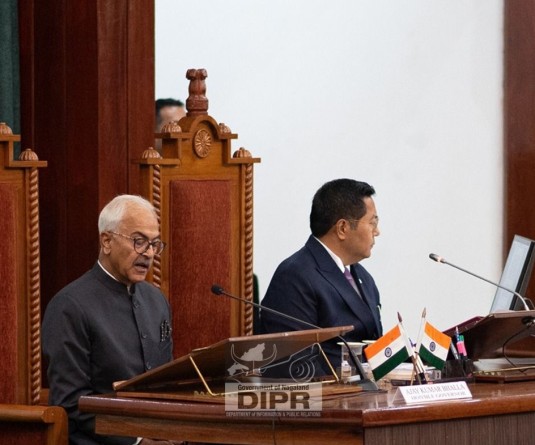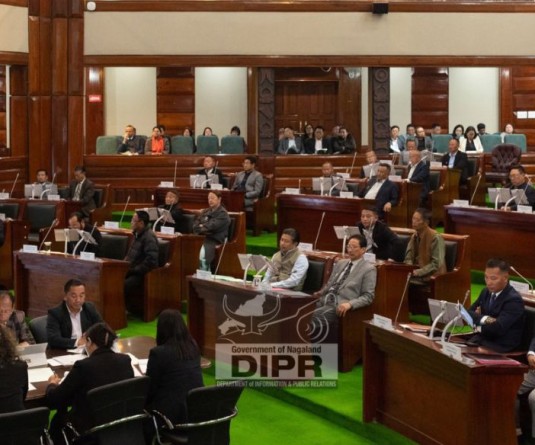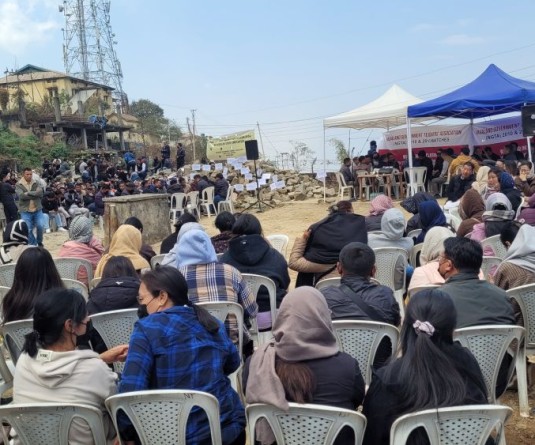
Kohima, August 23 (MExN): The Angami Public Organisation (APO) has noted today that India is a “strange country” where in some parts the Government makes provision for offenders to be “punished and imprisoned” for the slaughter of cows and possession of beef while in other parts “justifies and protects” the killing of innocent life through the Armed Forces (Special Powers) Act (AFSPA).
The Naga people have suffered enough over six decades and countless innocent lives lost on account of AFSPA, stated the APO in a press release today while extending support to the Naga Students’ Federation and other Naga apex organizations in protest of the extension of the Disturbed Areas Act and AFSPA to Nagaland.
“The present situation demands measures no less significant than the Prime Minister’s intervention, who must decide that AFSPA needs to be reviewed. This is the voice of the Naga people to the Government of India (GoI) that if the GoI is serious about peaceful negotiations and settlement, show the Naga people that intent in actions and deeds and not with big hollow speeches in press conferences and meetings,” stated the APO in its press release from its President Dr. Vilhousa Seleyi and Secretary Information & Publicity, Neisakholie Ziephrü.
AFSPA was passed in 1958 when the Naga movement for independence had just taken off; AFSPA is a bare law with just six sections. In its fourth and sixth sections, it enables security forces to “fire upon or otherwise use force, even to the causing of death” where laws are being violated and allows no criminal prosecution against any person who has taken action under this act.
“India is popularly considered as a nation which gives due importance to the rights and liberties of its citizens. It has absorbed the ideals of democracy in its truest sense. However, it is difficult to imagine that in a country like ours, exists a law which makes a mockery of the basic human rights,” maintained the APO.
A perusal of the provisions of AFSPA, it observed, “illuminates the extent of unchecked power in the hands of the armed forces.” It violates Indian Law and International Law. AFSPA violates the Universal Declaration of Human Rights (the ‘UDHR’), the International Covenant on Civil and Political Rights (the ‘ICCPR’), the Convention Against Torture, the UN Code of Conduct for Law Enforcement Officials, the UN Body of Principles for Protection of All Persons Under any form of Detention, and the UN Principles on Effective Prevention and Investigation of Extra- legal and summary executions.
Noting that “Accountability is a facet of the rule of law,” the APO reiterated that AFSPA “violates this basic understanding and principle of the law.”
“No one could be above the law; everyone must be equal before and under it. In light of the human rights violation, equality and justice, AFSPA is a law that has to go,” it affirmed.
Nagaland today is not the Nagaland of 1958, Nagaland today is peaceful, the APO said. “It is not free of intimidation, extortion or factional killings, but it is not worthy to be deemed as a disturbed area under the Indian Constitution.”
It also informed that the State government has been asking, since 2005, for the removal of the DAA but in showing its “double standards,” the GoI “refuses to listen.”






